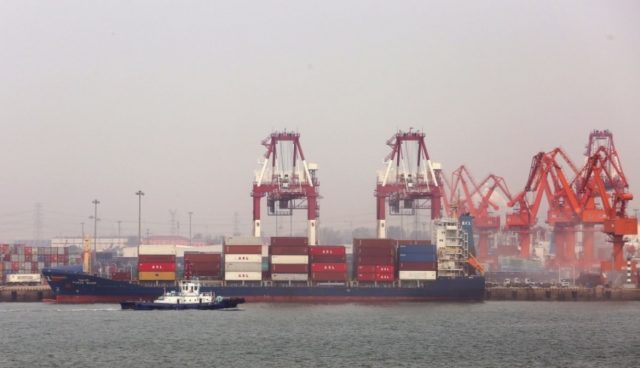June 12 (UPI) — To sufficiently shrink the carbon footprint of the shipping industry, corrective action is needed sooner rather than later, researchers say.
According to a new study, the industry doesn’t have time to wait for the next generation of low-carbon ships to come online.
To keep global temperature rise below the 2 degrees Celsius threshold set by the Paris Agreement, officials set CO2 reduction targets for various industries.
As the shipping industry has made plans to reduce their carbon footprint, much attention has been paid to the efficiency of new low-carbon ships. But the latest research suggests that as long as older, dirtier ships continue to operate, the shipping industry will struggle to operate within their safe carbon budget.
For the new study, published Friday in the journal BMC Energy, researchers calculated the total amount of CO2 that would be released should current ships continue to complete journeys through the end of their operating lifespans.
The data showed that “committed emissions” from current ships will exceed the industry’s Paris-compatible carbon budget, even before the carbon footprint of future ships are accounted for.
According to the new study, there are a number of strategies shipping companies can use to reduce the carbon footprints of current ships. Ships can reduce their carbon emissions by traveling at slower speeds, adopting carbon reduction technologies like Flettner rotors and connecting to the electrical grid while at port.
“The shipping industry continues to play a hugely important role in international trade and especially for our island nation, but this research highlights that the International Maritime Organization’s current targets need to be substantially tightened to align with Paris goals,” Alice Larkin, professor of engineering at the University of Manchester, said in a news release.
To better calculate the rate at which the shipping industry must decarbonize, Larkin and her research partners analyzed the age and expected lifespans of the 11,000 ships included in the European Union’s new emissions monitoring scheme.
The researchers say their analysis suggests the shipping industry’s own carbon reduction plans have consistently underestimated the scope of the changes necessitated by the climate crisis.
“Unlike in aviation, there are many different ways to decarbonize the shipping sector, but there must be much greater attention paid to retrofitting the existing fleet, before it’s too late to deliver on the net-zero target,” said John Broderick, climate change lecturer at the University of Manchester.
Scientists hope the study will inspire the shipping industry to make the necessary changes to its carbon reduction plans.
“Shipping is generally a greener way to transport freight than roads or planes, but its impact is still very large,” said Tyndall Center researcher Simon Bullock. “This research shows there is hope — shipping’s overall emissions could be dramatically reduced, if policy-makers act to cut the emissions from the existing fleet.”

COMMENTS
Please let us know if you're having issues with commenting.